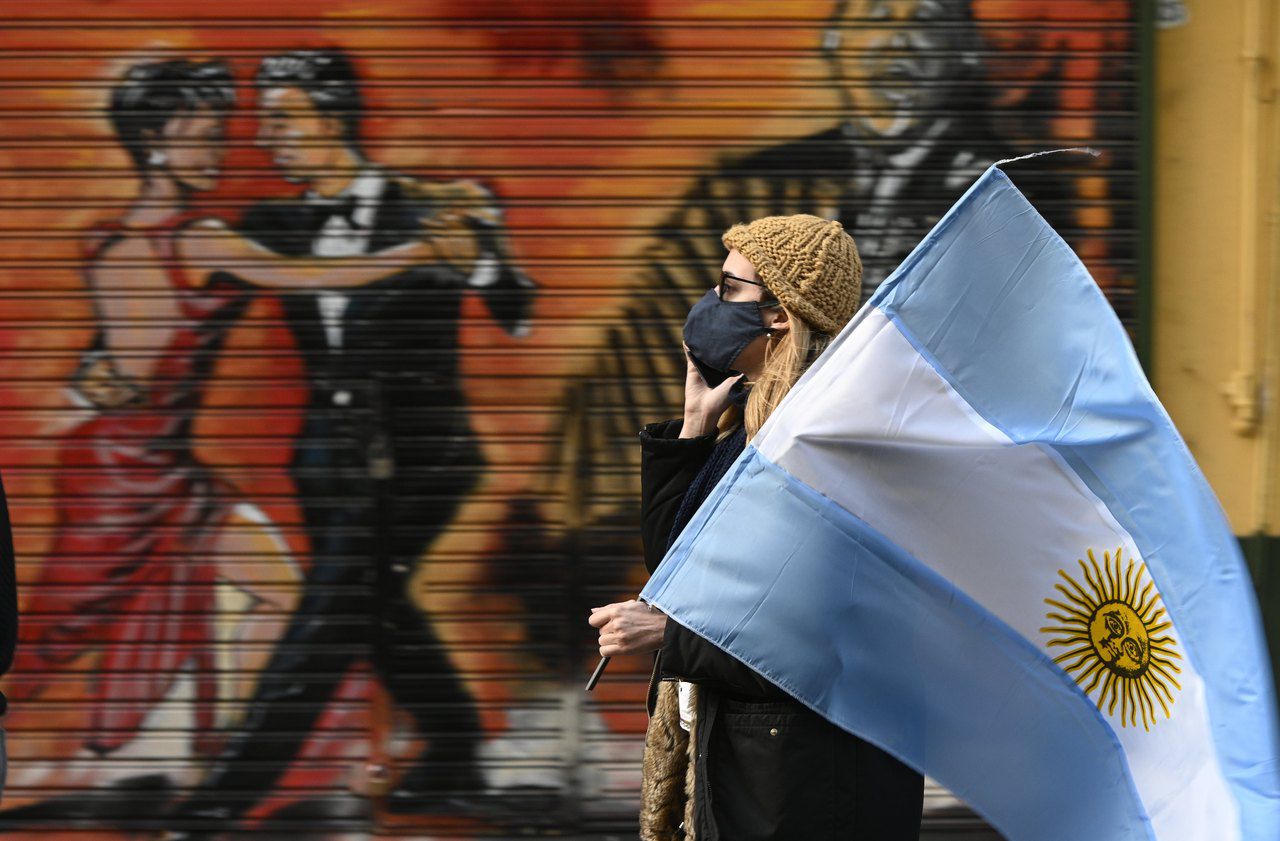The double penalty. Already suffocated by a major economic crisis, Argentina is also facing a critical health situation because of the coronavirus. The number of new Covid-19 cases continues to increase when looking at the average over the past seven days. In total, more than 185,000 infected individuals were reached on July 30, including nearly 6,400 identified over the last 24 hours.
“Argentina is still facing a fairly strong assault from the epidemic and it has not yet reached its peak, especially since the level of death remains quite high with around a hundred deaths per day (109 Wednesday and 153 Thursday, a record in 24 hours Editor's note) ”, notes epidemiologist Antoine Flahault, director of the Institute for Global Health at the University of Geneva, joined by Le Parisien.
"Intermittent confinement" until August 2, at least
The vast majority of new positive tests are found in Buenos Aires and the province of the same name, where about a third of the country's inhabitants live. “The distribution of the population is quite specific in Argentina. There is a very high urban concentration around Buenos Aires, with problems of access to health services and significant concentrations of population in the slums ”, notes Christophe Ventura, research director at the Institute of International Relations and strategic (Iris) and specialist in Latin America.
Suddenly - and unlike the rest of Argentina - the capital and its suburbs are still subject to numerous containment measures. This had been established very strictly, across the country, as of March 20.
In “Greater Buenos Aires”, some businesses were still able to reopen on July 20, ie after four months. But many activities are still at a standstill. A kind of "intermittent confinement", according to the expression of the governor of the province of Buenos Aires, Axel Kicillof, and which will remain in force at least until August 2. In view of the epidemiological situation, the deadline could be postponed once again.
“The government never said when the lockdown was going to end. Every fortnight, he announces an extension of an additional fortnight, ”sighs from Parisian Rafa, a 44-year-old entrepreneur. When going shopping or for a professional reason, this inhabitant of Buenos Aires always wears a protective mask or visor. “I view the situation with great concern. (...) we have to be a little firmer because there is something wrong, ”Argentinian President Alberto Fernandez said on Thursday.
"Need money to eat and to survive"
For several weeks, these social restrictions have been less and less well tolerated by the population. Demonstrations are organized to protest against the confinement and to denounce the social as well as economic consequences, many companies having had to reduce or even stop their activity.
Newsletter - Most of the news
Every morning, the news seen by Le ParisienI'm registering
Your email address is collected by Le Parisien to enable you to receive our news and commercial offers. Learn more
The numbers give the spin. On the one hand, 60% of Argentines believe that their mental health has worsened in recent months, according to a study by the Observatory of Applied Social Psychology at the University of Buenos Aires published on July 15. On the other hand, GDP could fall by nearly 10% in 2020, according to the International Monetary Fund (IMF).
“The confinement has been extremely hard, the whole economy has come to a halt. But many people needed money to eat and to survive. They said: I'd rather risk dying from the virus than starving if I don't have the money . Some have started to flout quarantine and go out into the streets despite confinement, ”Rafa said.
32% of the population lives in poverty in Argentina, against 20% in Peru and less than 10% in Uruguay and Chile, according to the latest data from the World Bank dating from 2018. A strong "social precariousness" which also presents a "significant risk factor" in the face of Covid-19, underlines Antoine Flahault. Anglo-Saxon studies have also pointed to excess mortality among the least affluent categories of inhabitants.
“Brazil has very large university hospital centers. In comparison, Argentina also has some advanced medicine but has much less social shock absorbers, ”points out the epidemiologist.
"Putting an already bloodless country back on its feet" before the Covid
To make matters worse, Argentina was already in a critical financial situation, much more than several of its Latin American neighbors - also severely impacted by the coronavirus. The country has even been in default since May 22.
The government is negotiating the restructuring of part of its debt with creditors, who have already rejected the latest proposal made by the Argentine authorities. The deadline for discussions has been extended to August 4. “This indebtedness was accompanied by a very strong austerity policy, which notably weakened the healthcare system”, judges Christophe Ventura.
As the researcher sums it up to conclude: "The health crisis is a calamity for this government in power for a short time, and which will have to put a country already bloodless when the Covid arrived. "
VIDEO. Coronavirus: "The season does not seem to have an impact on the transmission of the virus"

